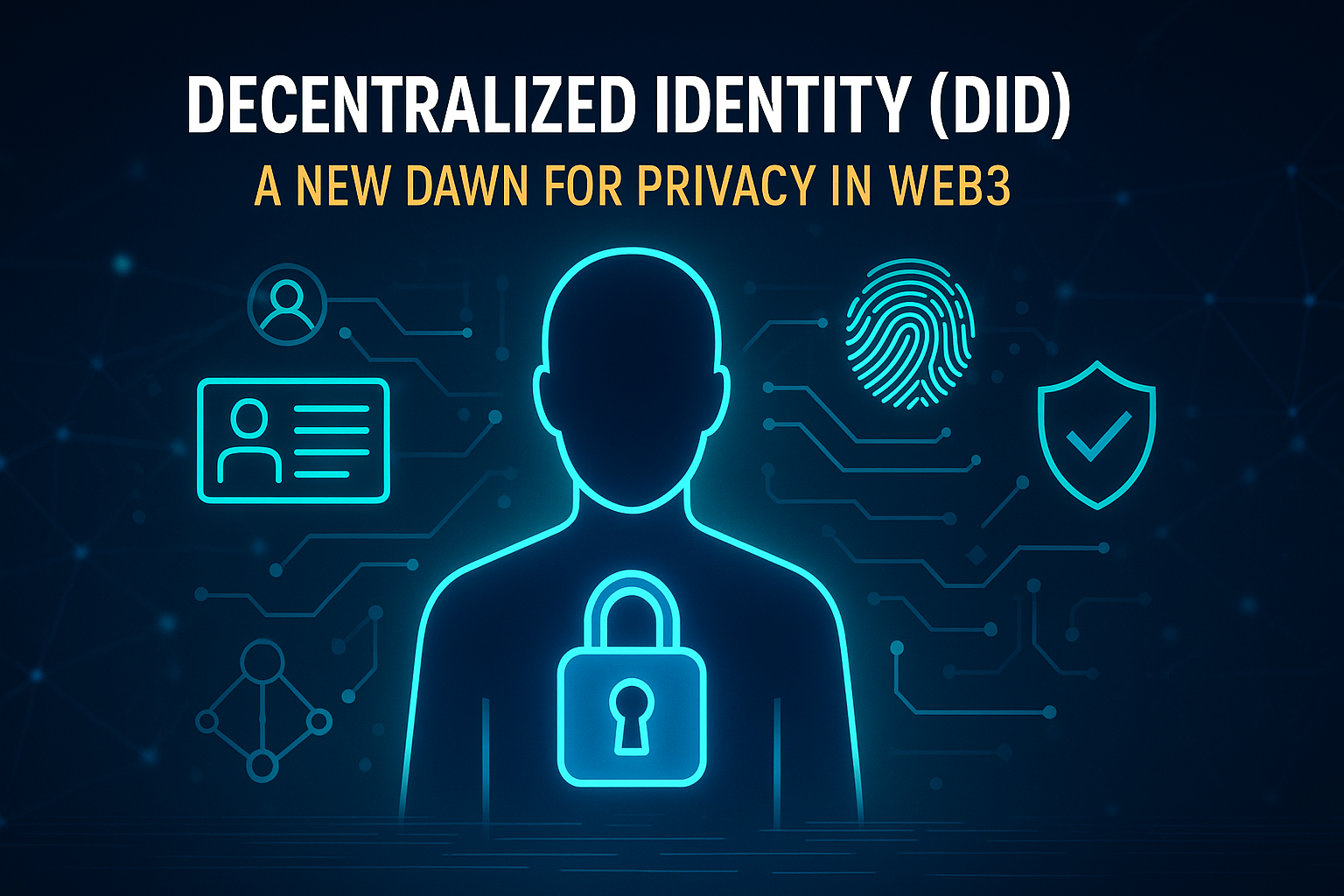Decentralized Identity (DID): A New Dawn for Privacy and Self-Sovereignty in Web3

In an age where digital surveillance is often accepted as a trade-off for convenience, the concept of owning one’s digital identity is revolutionary. As Web3 continues to redefine online interaction, Decentralized Identity (DID) emerges as one of the most powerful, yet underappreciated, innovations in the blockchain ecosystem.
Unlike traditional identity systems, which are centralized and typically controlled by governments or corporate giants, decentralized identity gives individuals the power to control, share, and verify their credentials — without depending on third-party intermediaries. This technology is poised to shift the paradigm of trust on the internet.
Why Centralized Identity Fails
From social media logins to bank accounts, users today are required to surrender personal data to countless centralized entities. This model creates honeypots for hackers and opens doors to abuse, censorship, and surveillance. Equifax. Facebook. Cambridge Analytica. The list of breaches and scandals is long — and growing.
In contrast, decentralized identity systems leverage blockchain and cryptography to enable self-sovereign identity. This means users own and manage their identities directly, storing them securely in digital wallets, often as verifiable credentials. Authentication can then happen peer-to-peer, with zero-knowledge proofs and selective disclosure adding layers of security and privacy.
Use Cases in the Real World
DID is already being explored in diverse sectors: from KYC in crypto exchanges, to e-governance, to education and healthcare. A university could issue a blockchain-verified diploma to a graduate, who could then present it to employers — instantly, securely, and without contacting the university again. In healthcare, patients could control access to medical records across providers while maintaining strict privacy boundaries.
Even in the metaverse and decentralized social networks, DID plays a vital role. It allows users to prove their humanity, reputation, or credentials without exposing their real-world identity — a balance between anonymity and accountability.
Challenges Ahead
Despite its potential, DID adoption faces hurdles. The technology is still in early stages, and lacks consistent standards across blockchains. Interoperability, regulatory clarity, and user-friendly interfaces remain key concerns. Furthermore, as with all decentralized systems, mass adoption requires a cultural shift — one where users take responsibility for their own data.
However, efforts by organizations like the W3C, Microsoft’s ION, and open-source projects such as uPort and Spruce ID are paving the way toward broader deployment.
Final Thoughts
Decentralized identity is more than a privacy tool — it’s an enabler of true digital freedom. As we transition from the centralized web to a more user-owned internet, DID offers a way to prove who we are, without sacrificing who we are. The road is long, but the destination is a freer, more private, and more secure digital future.